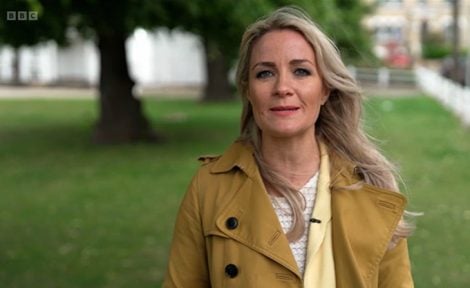To be let, or not to be let?
If the property has been a holiday let, surely it’s ok to market it as such? Rebecca Marsh, The Property Ombudsman answers the question.

Complaint
 A case that The Property Ombudsman (TPO) was asked to review came from potential buyers concerned with the marketing of the property. The sale particulars stated that the property could be used for holiday lets, when the lease actually prohibited this. The agent responded to the complaint by saying the sellers had let the property for many years and other properties in the same complex were frequently used as holiday lets. Furthermore, as soon as the issue came to light, sales particulars were amended to make it clear that the property had previously been used for holiday lets rather than stating it had suitable permission to do so.
A case that The Property Ombudsman (TPO) was asked to review came from potential buyers concerned with the marketing of the property. The sale particulars stated that the property could be used for holiday lets, when the lease actually prohibited this. The agent responded to the complaint by saying the sellers had let the property for many years and other properties in the same complex were frequently used as holiday lets. Furthermore, as soon as the issue came to light, sales particulars were amended to make it clear that the property had previously been used for holiday lets rather than stating it had suitable permission to do so.
The 2019 edition of the TPO Code of Practice was considered. For this case, the particular focus was on Paragraph 7i which requires an agent to disclose any material information of which they are aware in relation to a property in a clear, intelligible and timely fashion. In addition, agents are required to take all reasonable steps to ensure that statements that are made about a property (whether oral, pictorial or written) are accurate and not misleading, and to ensure that consumers are not misled by omitting information they need in order to make an informed decision.
The Ombudsman would expect agents to conduct a property fact find before marketing commenced.
As a matter of best practice, to ensure all statements made about the property were accurate and not misleading, the Ombudsman would expect agents to conduct a property fact find and to ask their seller client to provide details about the key features of the property before marketing commenced (Paragraph 2d of the Code). In this case, the sellers informed the agent that they had been renting the property out as a holiday let for many years and that there was a restrictive covenant in the lease which prevented the property from being occupied from 10 January to 28 February each year. This information was included within the sales particulars.
However, given the tenure of the property was leasehold, when the sellers informed the agent that they had been using the property as a holiday let, reasonable steps would have constituted requesting confirmation that the lease permitted this use. In the absence of a response, the agent should have made it clear in the marketing material that they had not been able to verify that the lease allowed the property to be used as a holiday let. This disclosure would have enabled any potential buyers to make an informed decision before financially committing themselves to the purchase.
Investigation
The Ombudsman accepted that the sales particulars did not state that the property had the relevant permission but considered that the reference to its previous use as a holiday let would give potential buyers the impression it could be utilised in that way. The fact the sales particulars did not make it clear that the use of the property as a holiday let was permitted by the lease or, alternatively, that any interested parties would need to seek verification on this point if they intended to continue doing so, constituted a misleading omission of important information that was likely to cause consumers to make a different decision.
This was borne out when the buyers withdrew from the purchase on their discovery of this information, following which the agent suspended marketing and sought advice from solicitors and the local council. The advice received indicated that the risk was minimal as the landlord had not taken any previous action against the sellers for using the property for holiday let purposes, but that it remained a risk and one that should have been disclosed. The Ombudsman therefore supported this complaint.
Outcome
The buyers wanted compensation to cover all costs incurred as a result of the aborted purchase which included £594 for a basic structural survey, £80 for a damp survey and solicitors costs of £200, totalling £874.
It was apparent that the buyers had explained that they intended to use the property as a holiday let from the outset and the Ombudsman was satisfied that they would not have offered on the property had they known that the lease contained a clause preventing them from doing so.
The Ombudsman made a total award of £1,074 – £874 to cover the buyer’s financial loss and £200 in compensation.





